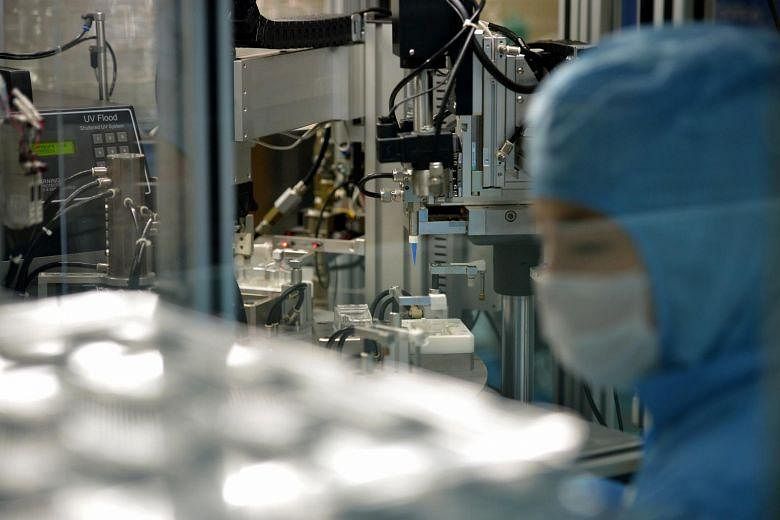Wage growth in Singapore is expected to ease this year and the next, with hiring sentiment turning cautious and fewer job vacancies than unemployed persons, said the Monetary Authority of Singapore (MAS).
The trade-related cluster is likely to continue trimming headcount as well, particularly in the electronics and precision engineering industries within manufacturing, as well as in wholesale trade, the central bank added in its biannual macroeconomic review yesterday.
This comes amid weakness in the global electronics cycle and persistent trade frictions, with vacancy rates in these sectors falling.
The decline in headcount in the first half of this year has been concentrated in electronics manufacturing and wholesale trade, said MAS.
DBS senior economist Irvin Seah said a trickle effect from the tepid economic growth to the labour market may continue for the next one to two quarters, with employment data reflecting this in retrenchment figures or a dip in employment growth.
But he added that barring any unforeseen negative shocks - geopolitical or economic - there should be a more pronounced improvement in overall outlook for the second half of next year.
OCBC Bank's head of treasury research and strategy Selena Ling said the softening in the labour market is both cyclical and structural, with some of it due to business restructuring and digital transformation.
"Wage growth moderation is to be expected, given the overall sluggish growth environment," she said, adding that Singapore will have issues with labour competitiveness otherwise.
While hiring in modern services and domestic-oriented clusters more than offset job losses in the trade-related cluster in the first six months, hiring sentiment has been more restrained, said the MAS.
There were fewer job vacancies than unemployed persons for the first time since December 2017 as well, and the re-entry rate among retrenched residents has declined.
UOB economist Barnabas Gan noted that while the slowdown in labour demand has largely been in manufacturing, this has not broadened to the general economy. What is more disconcerting is the ratio of job vacancies to unemployed persons, particularly if it persists below one.
But even as hiring sentiment has turned cautious, employers have retained existing workers, tending to place them on a short work week or temporarily lay them off to reduce labour costs, said MAS. "The slowdown in gross domestic product growth has mainly been absorbed by weaker productivity growth rather than cuts to employment," it added.
Going forward, the economic slowdown is expected to dampen hiring unevenly across industries, with the trade-related cluster likely to continue trimming headcount.
But job creation in modern services should remain relatively firm, and hiring in the domestic-oriented cluster will be supported by construction activities, said the MAS.
Recruiter Robert Half Singapore's managing director Matthieu Imbert-Bouchard said: "Singapore is operating in a dual-speed employment market bolstered by sustained profitability and demand for modern service sectors like information and communications technology, and finance and insurance."
This means that specialised professionals in finance, accounting and IT will continue to be in demand despite broader market uncertainties. But he said the growth of these sectors has served to deepen an ongoing talent and skills shortage.
Yesterday, the MAS said as well that external and domestic cost pressures are not likely to rise further, and the pass-through to consumer prices should be limited.



